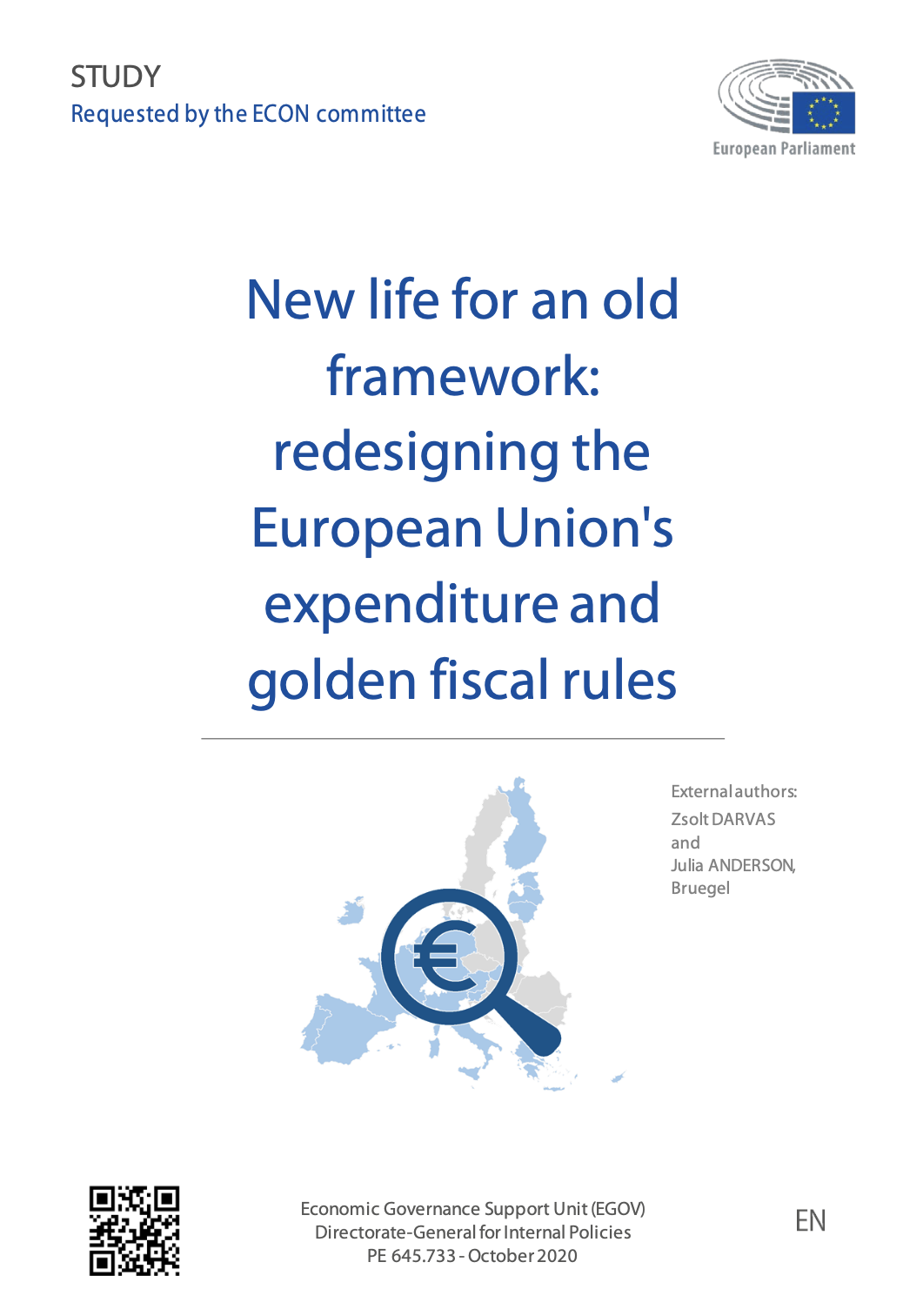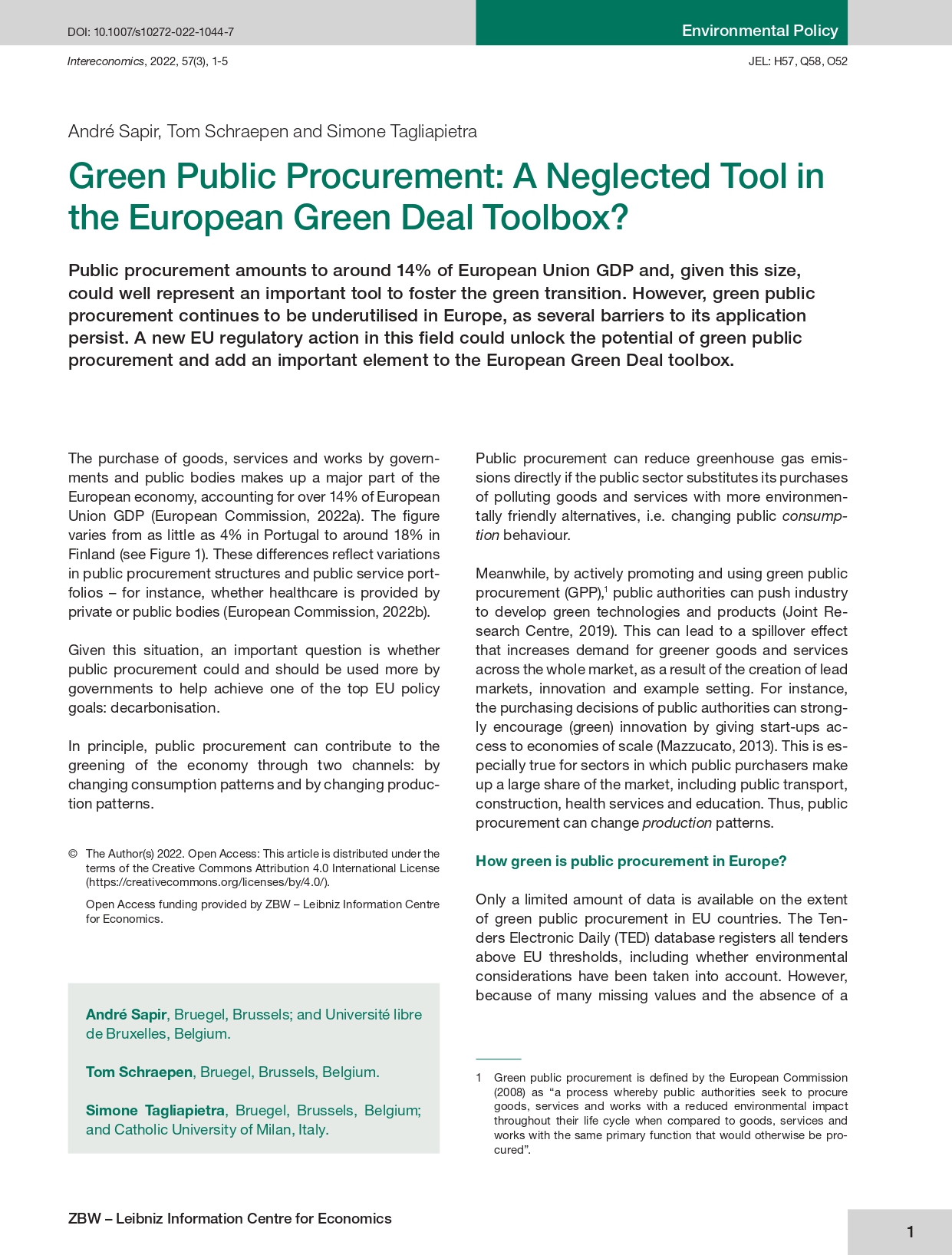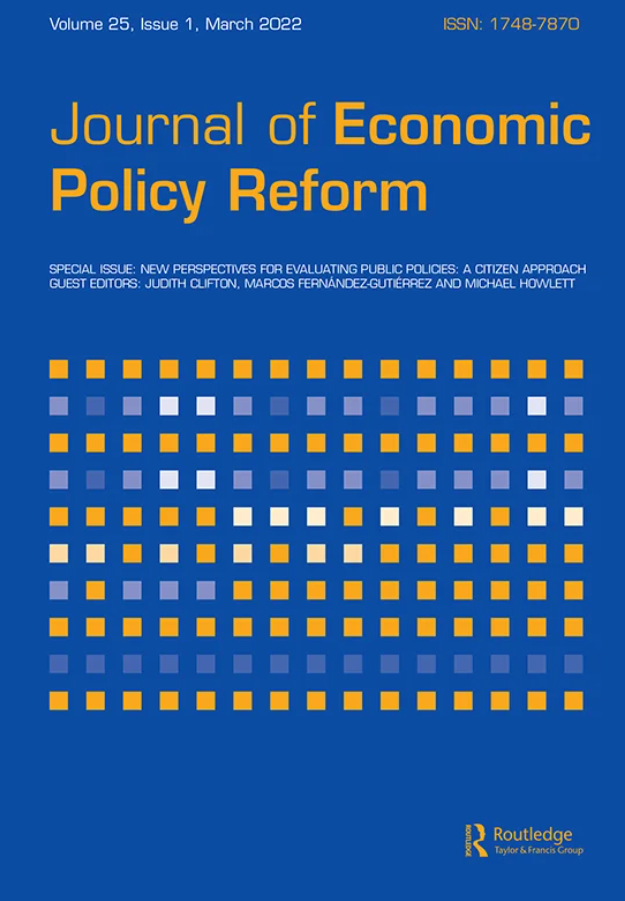External Publication
New life for an old framework: redesigning the European Union’s expenditure and golden fiscal rules
This briefing paper focuses on two aspects of the EU fiscal framework: whether an expenditure rule would be more reliable than a structural budget balance rule and the possible benefits and drawbacks of introducing a golden rule to exclude certain types of investment from the operational fiscal rule.
This study was prepared for the European Parliament’s Committee on Economic and Monetary Affairs. The study is available on the European Parliament’s online database, ‘ThinkTank‘. Copyright remains with the European Parliament at all times.
In the context of the review of the EU economic governance framework, this study recommends a multi-year ahead expenditure rule anchored in an appropriate public debt target, augmented with an asymmetric golden rule that provides extra fiscal space only in times of a recession. An improved governance framework should strengthen national fiscal councils and include a European fiscal council, while financial sanctions should be replaced with instruments related to surveillance, positive incentives, market discipline and increased political cost of noncompliance.
This document was provided by the Economic Governance Support Unit at the request of the ECON Committee.











